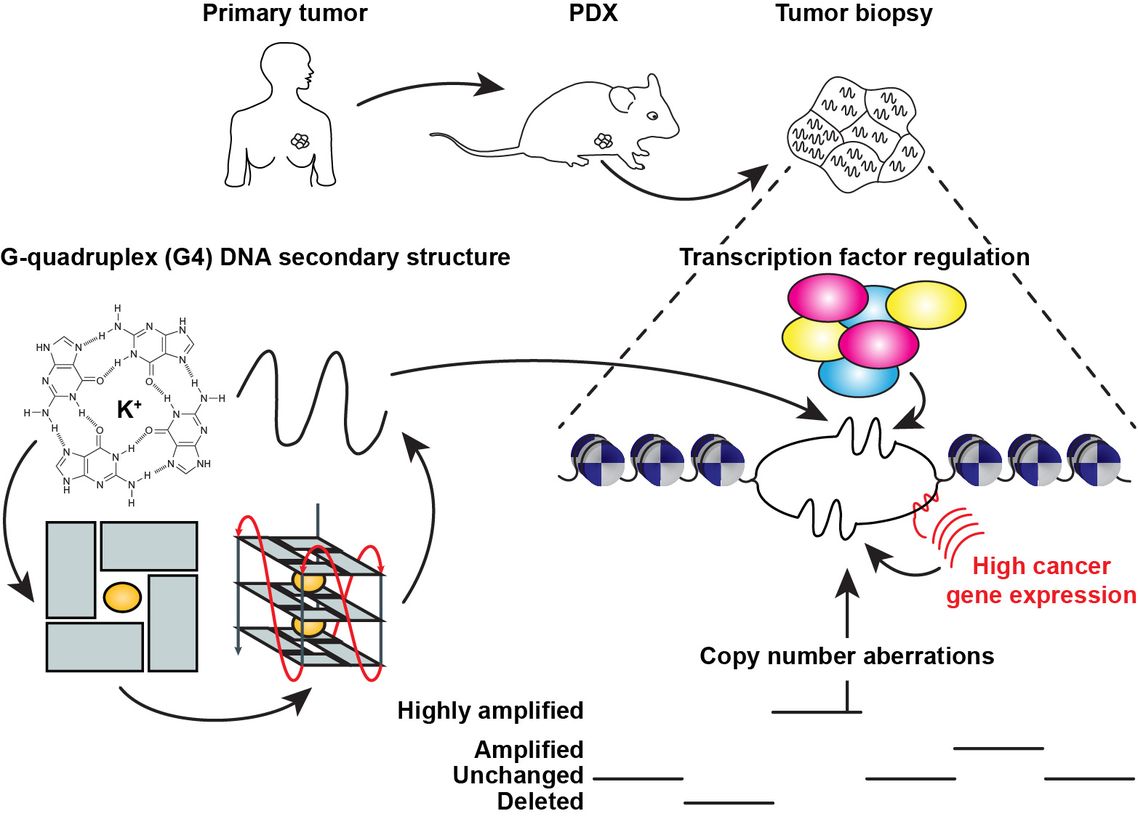(Epi)Genome structural alterations predisposing to cancer development and/or drug resistance.
Response and resistance to anticancer therapies vary owing to inter- and intra-tumour heterogeneity. Aberrant gene activity and genome instability are critical processes in cancer development. Precision medicine aims to characterise tumour heterogeneity and identify cancer-specific molecular vulnerabilities. Mutational signatures of lung cancer have been extensively characterised, but the impact of epigenome alterations and stability are less understood. We have recently established that G-quadruplex (G4) DNA secondary structure marks critical biology of breast cancer and is of diagnostic and therapeutic value. Our lab aims to uncover epigenome alterations that critically drive cancer and its resistance mechanisms using our recently established quantitative G4-ChIP-seq technology to stratify patient-derived cancer xenograft models, reflecting on personalised genome architecture, transcription factor regulation and activity, as well as cancer subtypes suitable for drug-treatment.


CMMC
Center for Molecular Medicine Cologne
University of Cologne
Robert-Koch-Str. 21
50931 Cologne
Germany
+49 221 478 96988
robert.haensel-hertsch[at]uni-koeln.de
Find out more:
Robert Hänsel-Hertsch@CMMC Cologne
Robert Hänsel-Hertsch@SFB1399